
Ioana Mihala
More than 5 billion people, approx. two-thirds of the global population, have a smartphone and that number is continuing to grow. However, when it comes to climate change, how smart are our smartphones? What is the carbon footprint and how can we source a sustainable and ethical smartphone?
Environmental Impact
The problems with mobile phones lie mostly in their supply chain. Rare earth materials such as gold, silver, platinum, palladium, yttrium, or lithium, to name just a few are needed for their components, making them one of the most resource intensive products by weight on the planet. The mining of these materials is mostly fueled by oil, thus contributing to high carbon emissions. Furthermore, social impacts, particularly around human rights, are often a concern in this process as well.
Another environmental consequence comes from the manufacturing process. Most electronic devices are produced in China, where coal is still a dominant source of energy, leading to even more emissions.
Everyone wants the latest, best, thinnest, smartest phone and this leads to a shorter lifespan of our devices. On one hand, fully-functional phones are replaced and thrown away, while on the other, mobile companies don’t design devices that are durable or easy to repair. Since very little is collected and recycled properly, the amount of e-waste continues to grow. Currently, between 40 and 50 million tonnes of e-waste is produced yearly worldwide and less than 16% is recycled in the formal sector. The pollution from the hazardous materials and metals impact local environments and the health of the many informal workers on site.
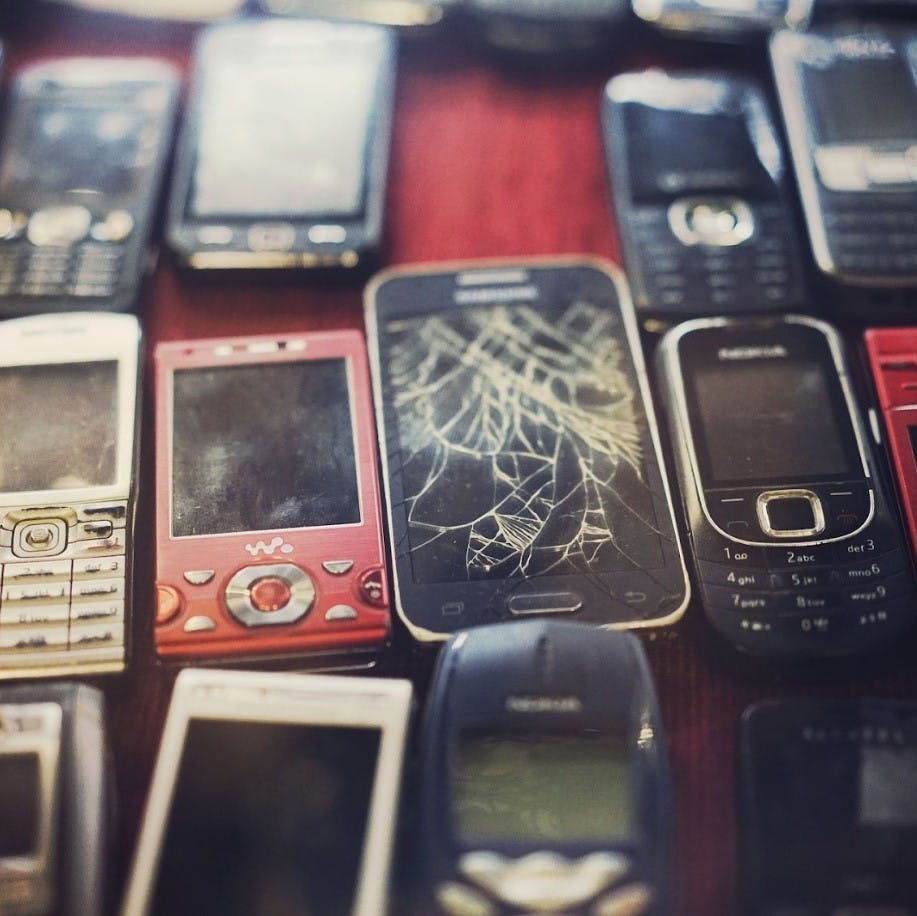
Carbon Footprint
Around 80% of the carbon footprint of a smartphone occurs during production, due to the energy-intensive processes of manufacturing and mining. The average mobile phone creates 55 kg of carbon emissions during these processes, which does not sound like a big number but it adds up when about 1.55 billion phones are sold per year worldwide. According to a 2019 study by the European Environmental Bureau, the climate impact of phones in the EU was 14.2 million tonnes of CO2
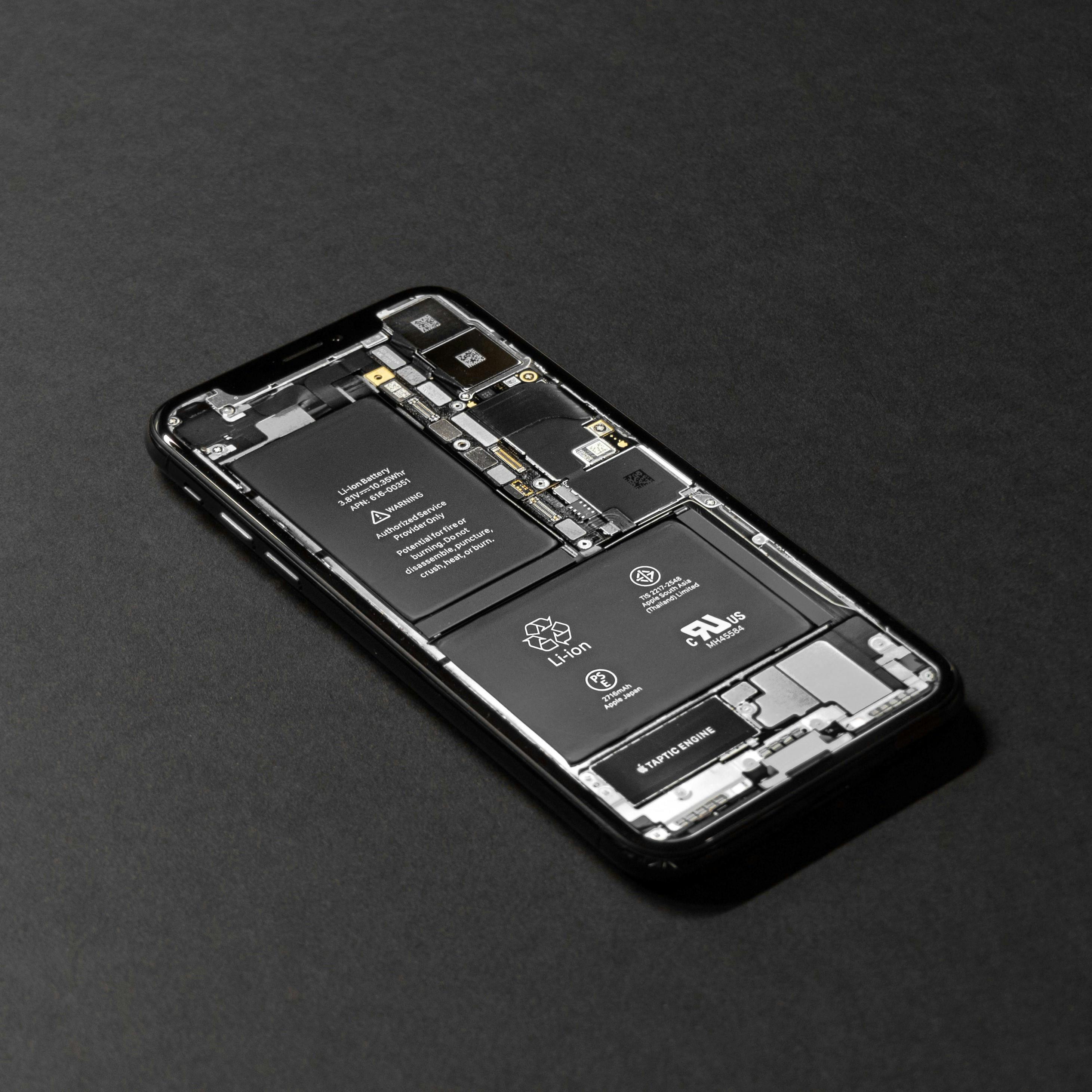

Take action now
Do you want to have a direct impact on climate change? Sir David Attenborough said the best thing we can do is to rewild the planet. So we run reforestation and rewilding programs across the globe to restore wild ecosystems and capture carbon.
Get involved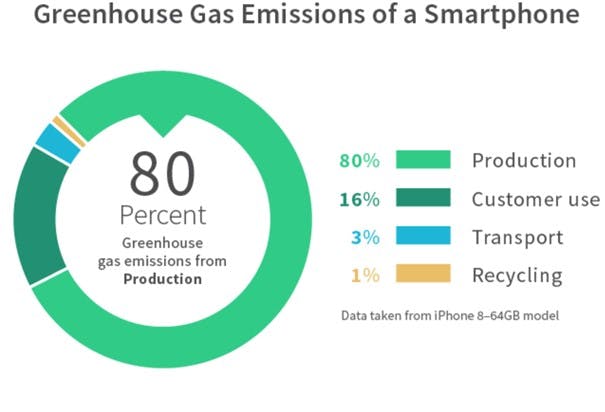
Reduce, Reuse, Recycle
Before buying a new phone ask yourself one question: is this something you actually need or just something you want? The current average lifespan of a smartphone is between 1 and 2 years, if we would all reduce our consumption and keep our phones longer, it would have a great impact in terms of greenhouse emissions.
Instead of purchasing a new phone, why not go for a second-hand or refurbished one? You will pay less and reduce your carbon footprint. Refurbished phones have been professionally reconditioned and come with warranty and return policy. I bought both my smartphone and laptop refurbished over a year ago, and I got what I ordered and haven’t had any technical issues since, so I can only recommend it. Some brands, such as Apple, offer refurbished devices themselves, if not you can go on Ebay or search for companies that offer that in your country.
As previously mentioned, your phone is filled with many materials, of which some are rare and valuable, so it is important that these are extracted and reused, instead of ending up in landfill. Up to 80% of your phone is recyclable so don’t just throw it away or leave it in a drawer! Some mobile phone companies have a take-away system and recycling programme in place and you might even get a discount on your next phone. You can also sell them or donate them to organisations that, depending on the condition, will refurbish or recycle them.

A phone embodies an extraordinary paradox: it facilitates our potential connection with pretty much everybody, yet we have zero connection with its manufacture.
Bas van Abel, founder of Fairphone
Criteria for Sustainable & Ethical Smartphones
What should you look for when buying a new phone? Here are some criteria for sourcing a sustainable and ethical smartphone:
Transparency in the supply chain - check the company’s website, do they have anything on sustainability? Do they offer any information on their suppliers for the materials and their manufacturing? What kind of energy do they use? How do they deal with the environmental and social impacts from production? The more information you find, the better.
Sustainable design - the key features for sustainable phones are: use of sustainable and recycled materials, the use of less energy and efficient charging, durability, and last but not least they should be easy and inexpensive to repair.
End-of-life responsibility - check the company to see if they have a take-back system in place and read about their recycling programmes. The more materials are recovered and reused from recycling, the more sustainable.
If you have found this guide useful, we also recommend our Environmentally Friendly Laptop guide.
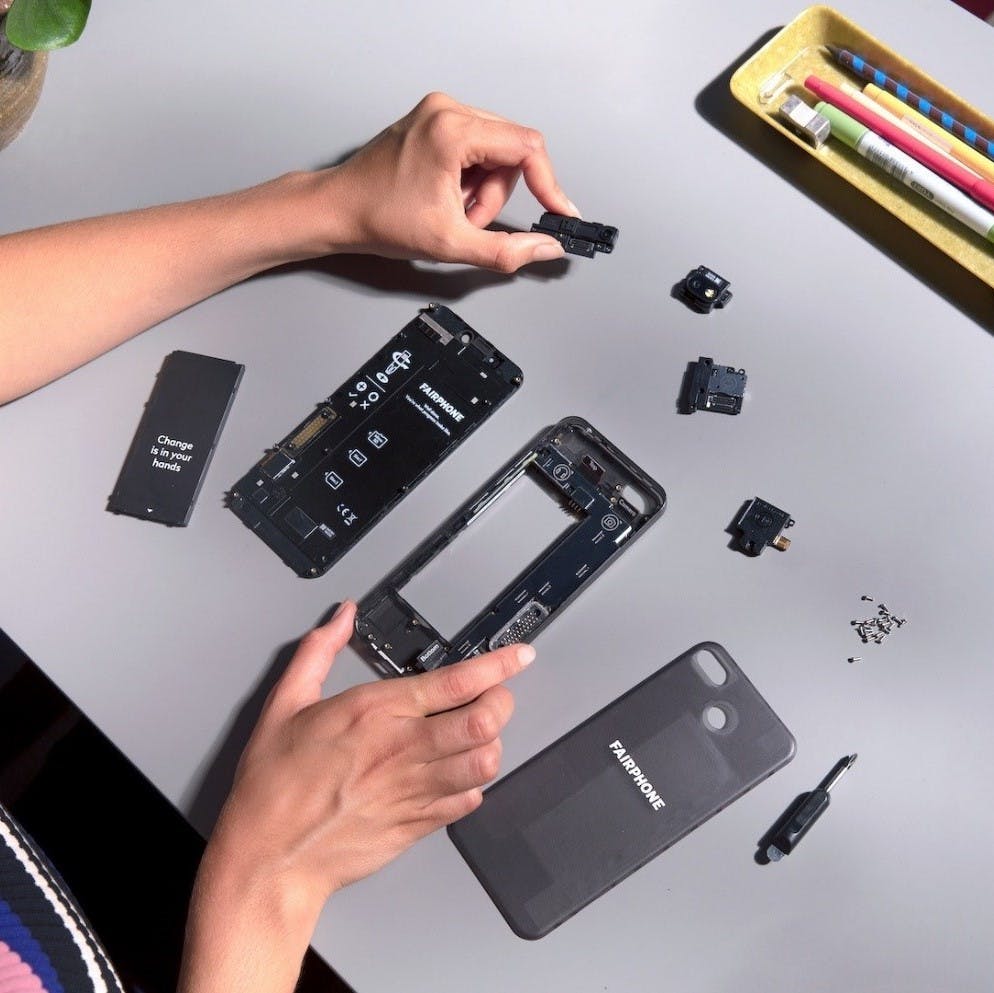
External Ratings
Besides the companies’ websites, here are some external ratings to help you make a green and ethical smartphone choice:
Ethicalconsumer.org - the brands are rated on the following criteria: the use of conflict materials, supply chain management, toxic chemicals management, sustainable certification, and greenhouse gas emissions.
Thegoodshoppingguide.com - provides ethical company index scores, based on environment, human rights, and animal welfare criteria.
www.ifixit.com - the phones are scored on repairability, the models with the highest scores are the ones that are easy to disassemble and have a service manual available.
On top of all these lists, there is the Fairphone, a product by a Dutch social enterprise, which started as a campaign against the use of conflict minerals. Now it leads the way on supply chain transparency and repairability.
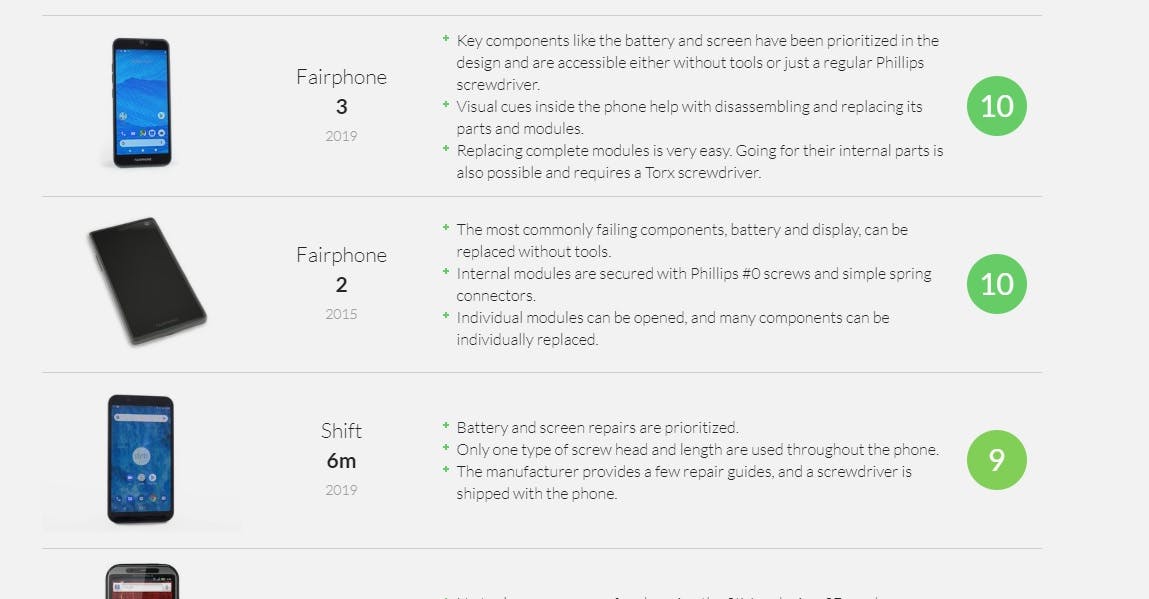

Sources & further reading

- “Is your phone really smart?” - UN Environment
- “Smartphones are warming the planet far more than you think” - Anthropocene
 Reduce your consumption. Don’t let yourself get seduced by the latest, shiniest device.
Reduce your consumption. Don’t let yourself get seduced by the latest, shiniest device.